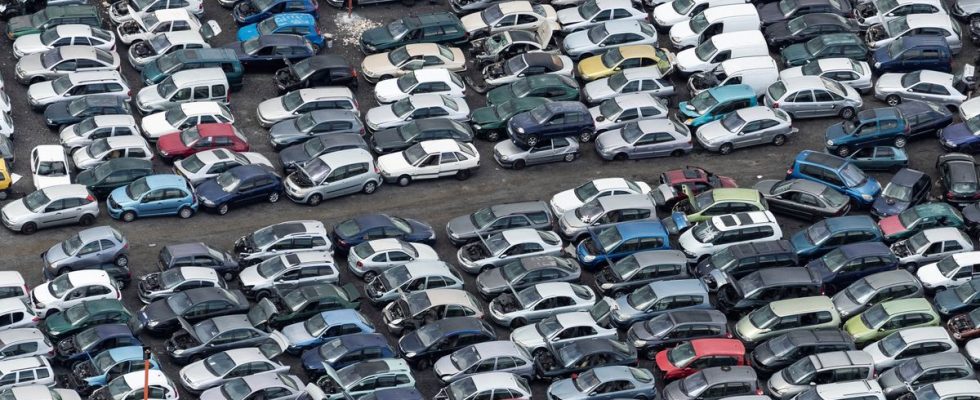The system has existed since 2015 but really took off from 2018. With the conversion bonus, households can, subject to income conditions, receive aid to acquire a new less polluting vehicle on the condition of scrapping their old car . A boost from the State which aims to green the vehicle fleet and has already enabled more than a million French people to buy or rent a cleaner new or used vehicle. The great success of this conversion bonus, however, has its drawbacks. Because every year, tens of thousands of cars still roadworthy end up crushed at the body shop. “Some only have 30,000 or 40,000 kilometers on the clock and are still in exceptional condition,” says a mechanic. It’s unfortunate to see this but there is no other choice. »
Faced with this “immense waste”, environmentalists, not necessarily known to be pro-cars, are proposing to extend the lifespan of these scrapped cars to benefit vulnerable people. Based on an idea from Joël Labbé, former senator from Morbihan, the environmentalist group in the Senate took advantage of a parliamentary niche on December 13 to present a bill “aimed at promoting the reuse of vehicles in the service of sustainable and inclusive mobility on the territories. » A text which was voted unanimously by the upper house, although dominated by the right and the center. “It is the emblematic text of field ecology: it is practical, it is concrete, it is useful and there is, behind it, a certain ecological interest,” welcomed the president of the ecological group Guillaume Gontard.
“15,000 to 20,000 vehicles could be recovered per year”
The bill will now continue its journey through the National Assembly, which is expected to debate it in the coming weeks. But its adoption is beyond doubt according to the environmentalist senator from Ille-et-Vilaine Daniel Salmon. “I don’t have many concerns but it will have to be in the same terms,” he says. According to the text adopted by the Senate, however, only gasoline vehicles classified Crit’Air 3 or less are affected by this system. “It’s still 15,000 to 20,000 vehicles that could be recovered per year, which is not negligible,” assures Daniel Salmon.
If the bill is definitively adopted, these vehicles saved from the scrapyard will be destined for integration structures such as solidarity garages. “We are overwhelmed by requests and we do not have enough vehicles to respond,” explains Guillaume Diulein, head of Mobil’Insertion.
A “social” but also “ecological” text
This solidarity garage opened its doors a year ago in Betton, north of Rennes, with a fleet of 22 cars, mainly from community donations. For a very low price, the structure offers vulnerable people the rental of these vehicles for a period of one day to three months. “The objective is to help them on the path to employment by removing obstacles to mobility,” explains Guillaume Diulein.
“Social”, the text is also intended to be “ecological”, according to Daniel Salmon. “We are of course pushing for the end of thermal cars but we also have to be realistic,” he believes. Because it will take time and the car remains essential in certain territories. But with this text, we are rejuvenating and improving the vehicle fleet by allowing people in difficulty to have access to less polluting cars. »

